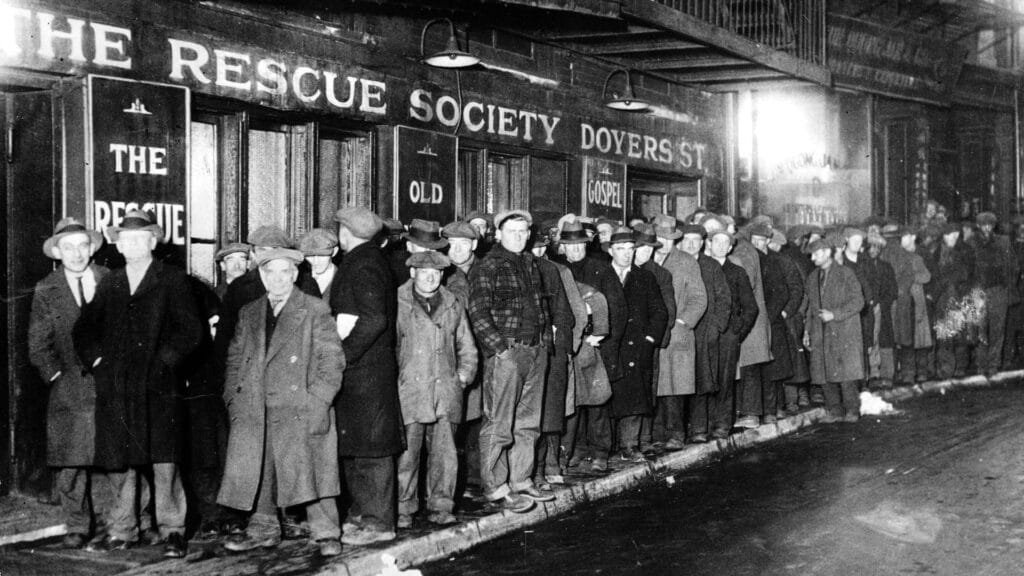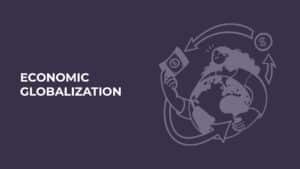Shortly after the world started seeing its way out of the dark tunnel of COVID, we were rushed into the international catastrophe that is the Russian war on Ukraine. In addition to the heartbreaking effects on innocent Ukrainian civilians who have to suffer the horrors of this war, several nations are being affected by the economic effects of this war on their countries.
It is no surprise that other countries are suffering due to Russia’s decision to launch this war as the world has previously witnessed negative economic results from wars being launched and fought in different countries and locations. The reason for this is the effect of globalization and international trade leading to certain countries monopolizing certain products.
Additionally, wars, in general, are known to create a huge hindrance to the economy movement and growth. For example, WWII resulted in a huge debt that was estimated at 120% of GDP, and the taxes were increased 3 times by the end of the war. Those were only the results for the USA at the end of the war, not to mention damage to the economy of other countries and the enormous lack in essential goods that normal citizens suffered from during the time of war.
Similarly, the Russia-Ukraine war has created a serious problem for the world in the form of a pending global food crisis. According to the BBC, Both Russia and Ukraine produce almost a third of the world’s entire wheat production. So much so that Ukraine produces over 4 million tons of agricultural products every single month for exports!
Having one of the main food producer countries in the world being attacked by one of the main wheat producers in the world is a huge indicator that the lack of food that the EU and the rest of the world are going to suffer will be the starting point for searching for alternate solutions.
When the COVID crisis broke out, the whole world looked at doctors and biology scientists to save us. Now, it is time to look towards economy experts, not only to anticipate the coming event but to find solutions as well.
In this article, we’re taking a broad look at the aftermath of the Russia-Ukraine and its results on the global economy and how it may shift to remedy the extreme harm that this war has inflicted upon the world. What are the opportunity cost and the comparative advantage in this situation?
World Economy Cycle from Recession to Expansion
Following WWI, the world was faced with the famous Spanish flu pandemic that hit the world between 1918 and 1920. In the late 1920s, in 1929 exactly, the United States and the UK as well as many other countries faced a significant recession that lasted for 10 years until 1939 turning into what was later called the great depression.
While many experts compared that pandemic to the COVID pandemic of 2020 only from a medical point of view, it is fair to make the link from an economic point of view.

The depression that followed the world pandemic in the 1920s was then followed by WWII which did not help the economic situation in the world. Nation lived through rationing of resources and food, many starved, and we can even see the heartbreaking photos of people selling their children during these extremely tough times.
After WWII ended, however, the world experienced what is known as the post-war economic boom where the global economy was going through a huge expansion to the extent that some economic historians called it “The Golden Age of Capitalism”.
This cycle and others that are quite similar are leading me to believe that we’re experiencing the same events in today’s modern world. First, the coronavirus hit the world causing a worldwide pandemic, then, a major war broke out in Europe causing many countries to be affected.
The difference between the WWII situation and the world 2022 situation is that the Russian war on Ukraine cannot be viewed as a world war. So, how can it affect the whole world?
Well, the answer here is the Globalization of the economy.
What is Economic Globalization?
Globalization is a general term that describes the interdependence of cultures and populations around the globe. Similarly, economic globalization refers to the interdependence and intertwining of all countries’ economies through a growing international trade of products and services.

In simpler words, economic globalization leads certain countries to specialize in, and in many cases monopolize, the production of a certain commodity in order to export it to the rest of the world while relying on other countries to provide them with the rest of their needs of products and services through international trade and imports.
As a result of this interdependence of economies, a war launched in Europe between Russia and Ukraine had a similar effect to that of WWII on the rest of the world’s economy.
This is why economic experts and scientists have to look back and turn to history books to try and understand what’s going on in the world right now and set expectations as to what can be the result of the current recession and how it can be resolved.
Looking into the Past to See the Future
Although no one is confident or has the clarity as to what can happen in the next 1-2 years and all predictions and forecasts can only be set for a very short term of months, or even as short as weeks, looking into the world economy’s past cycle can help and provide some clarity.
Applying the economic cycle, from recession to expansion, and since we are in a recession now, it would be safe to say that the world economy is headed towards a period of expansion after the Russia-Ukraine war ends. With that being said, the one thing that remains unclear is that no living expert can predict when that war will end.
So, in other words, while we can be certain that we’re going into an expansion period, we cannot, by any means, tell when that period might start!
However, this must not stop business owners and investors from getting ready for when that expansion period starts in order to be able to take the biggest advantage of the new business opportunities that will arise.
Additionally, entrepreneurs must seize the opportunities that may come during the period of the crisis itself as it is certain that even during times of major economic crises several business sectors can grow and expand which happened even during the great depression with the stocks, movies, and spirits that Joseph Kennedy Sr. doubled his fortune from after the 1920s and when the depression was crushing everyone else.
Another example is the COVID-19 pandemic in 2020 when healthcare, E-commerce, financial technology, and E-learning markets boomed during the crisis. Likewise, the current situation requires serious effort, time, and money investments to be ready for the new opportunities that allow you to the next Kennedy fortune and the new world economy that will form once the war ends.
Is a New World Economy to Be Expected?
The reason I’m calling the expected situation after the war ends “a new world economy” can be clarified by revisiting points in history when the world was faced with similar economic conundrums and seeing how it started a new cycle of the economy with new ways for trade and revolutionary way of thinking that starts to dominate the world economy.
To get a clearer idea, you can check the world movements after WWI and WWII. Every major development that was achieved in agriculture, industry, and technology happened after a period of recession and one of those great wars. Those major shifts resulted in a complete change not only in the economy of the world but in the lives of average individuals around the globe.
At this point in time when humanity is experiencing and enjoying new technologies and accelerating advancements in every aspect of business and personal lives, it can be quite difficult to speculate on the next major breakthrough in industry or technology after the Russian war on Ukraine ends. Yet, we can be certain that a remarkable breakthrough, invention, or discovery is going to be accomplished.
How Can The World Economy Change?
Now that we’ve looked at why the world economy would change, it’s time to look at how it can change.
- Major crises generated by the war in Ukraine such as the food crisis led to a notable change in consumer behavior and preference. For example, Europe is now facing a serious lack of food oil and frying oil as most European countries were almost exclusively importing this product from Ukraine. As a result of that oil shortage, the EU consumers no longer can get the traditional French fries easily, which were very popular in the past. So, the alternative now is to get baked or boiled potatoes instead. Others started heavily relying on air fryers which require much less oil. This can mean increased demand for this appliance and new huge opportunities for home appliance producers!
This is one simple example of how, after this war ends, there will be significant changes in cultures which will result in an important change in business dynamics. However, at this point in time, no one can tell to what extent this change is going to be.
- On another note, there is a clear increase in cars and electronics prices due to supply chain challenges that were created not only by the Russian war on Ukraine but also by COVID prior to the war.
The reason for this price increase is that semiconductors, which are one of the main components that are used for smart devices and cars, are manufactured exclusively in China. In other words, China is monopolizing an essential product that is affecting the rest of the entire world. This monopoly is no fault of China itself, but rather a side effect of economic globalization.
Those two examples are a clear and actual translation of the concept of globalization which most countries have successfully applied to their economies. The downside to this concept is that applying it to a country means that this country is going to be affected by what’s happening in other countries which may not be even neighboring. For example, the current war in Europe is affecting countries in the Far East, Africa, and South America.
Opportunity Cost & Comparative Advantage

In the coming months and years, a very important concept is going to occupy the minds of everyone who’s involved in the world economic scene. This concept is the comparative advantage which means being able to produce products and services at the lowest opportunity cost.
The concept of comparative advantage is what initially pushed the world toward economic globalization and international trade where one country pours its important resources into the production of a certain commodity. The reason for this is the production of this commodity represents the lowest opportunity cost for that country like wheat in the case of Ukraine and smart device chips in the case of China.
This country, in return, would get its needs of other products from other countries through international trade.
This concept was working fine for the world when only economical factors were involved in calculating the comparative advantage. However, with a war going on in Europe at the moment, the national security of several countries came into play as a factor in calculating the comparative advantage of international trading and depending on exports for fulfilling the nation’s needs for a strategic product such as wheat, food, or oil.
With that in mind, it is fair to wonder whether more countries and governments are going to resort to localizing the production of these sensitive and strategic products within their own borders to avoid dealing with such problems in the future.
The question I’m posing here is whether we will see global movements calling for major shifts and changes in African, Asian, North American, South American, and EU countries.
Is this possible given that the challenge is not only represented in the form of a war or a pandemic as many countries are being called to protect their national security even at times of peace by providing strategic products locally to protect their people?
Additionally, for countries that depended on only the exports of a limited number of products and services, diversifying the sources of income might be on the top of these countries’ agendas and priority lists following the saying: “Don’t put all your eggs in one basket”.
As a result, we may see industrial empires rising in different countries across the world, not only in China. We may find the China model in Africa, other Asian countries, or even in South American nations!
Now, it’s time to ask the main question: How do you see the current global economy moving forward after the Ukraine war ends?
At the moment, all experts can do is carefully observe the situation!




